The colours, health and energy levels of your betta fish are greatly influenced by their diet and how much or little they are fed. It’s important to ensure you’re feeding your pets high quality, good food that’ll enhance their well-being. So, here are our recommended 9 Best Betta Fish Food to help look after your pets.
Comparison Table
| | | | |
|---|
| TopBest Pick |  | Hikari Betta Bio-Gold Baby Pellets Fish Food Bundle Bonus Pack 3 Pack | 4.8/5 | Check Price |
| Top Performance |  | Fluval Bug Bites Betta Fish Food, Granules for Small to Medium Sized Fish, 1.06 oz. | 4.7/5 | Check Price |
| Cheapest |  | Tetra BettaMin Worm Shaped Bites 0.98 Ounce, Complete Diet For Bettas | 4.5/5 | Check Price |
Even fish can be picky eaters, and finding a food that they might take to while still being nourishing can be a bit of a challenge.
A variety of high-quality, high-protein fish foods for you to try with your betta are mentioned below.
Top [2022] 9 Best Food for Your Betta Fish
Best Betta Fish Food Reviews

The Hikari Betta Bio-Gold Baby Pellets are a great option simply because they float. Since bettas prefer to eat on the surface, this floating grain is more palatable.
Floating pellets can also allow you to track how much your fish have eaten, helping to avoid overfeeding and the risk of uneaten food polluting water quality down the track.
It’s made up of high-protein fish meal, which is dehydrated and concentrated fish meat.
These granules also contain stabilized vitamin C to promote a healthy immune system. Along with natural enhancers that assist in keeping the color of you betta vibrant.
The pellets are small and it’s recommended you feed your betta between 5 to 10, 3 times a day depending on their size.
4.8/5 STARS
Benefits
- Floats
- Color enhancers
- Vitamin C
- High-protein
Cons
Check Price On Amazon
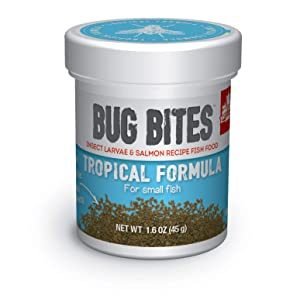
Fluval Bug Bites Granules are 40% composed of black soldier fly larvae, making it a very nutritious food option for bettas and other fish.
In addition, it contains a number of other high-quality ingredients helping to strengthen fish skin, fins and scales. Ingredients like whole salmon, rich in Omega 3 and Omega 6. They also contain amino acids, essential vitamins and minerals for a balanced diet.
Fluval is made in Canada and contains no artificial colors, preservatives or fillers. It’s processed in small batches, which ensures the highest quality product your fish will love.
4.7/5 STARS
Benefits
- 40% Black fly larvae
- Rich in Omega 3 & 6
- Slow sinking granules
- No artificials
- Small size
Cons
- Not best choice for larger fish
Check Price On Amazon

The TetraMin Tropical Granules are the ideal well-balanced diet for tropical aquarium fish. It’s best for mid-level feeder fish, especially shy or juvenile ones.
The granules break down slowly. Tetra created them to minimize waste as they improve the utilization of food in the tank.
This fish food contains plenty of vitamin C and a number of other minerals and vitamins all working to enhance the color of your betta.
It’s recommended to feed bettas only a few pellets per feeding. The pellets sink relatively fast and it’s important to avoid having too much excess food resting on the bottom of the tank.
4.5/5 STARS
Benefits
- Granules
- Inexpensive
- Balanced nutrition
Cons
Check Price On Amazon
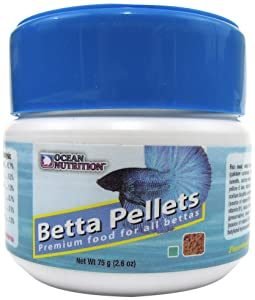
Ocean Nutrition Atison’s Betta Food is another floating pellet option. It’s made up of 36% protein with minimal fillers providing a balance, nutritious choice.
The natural ingredients work to enhance the color of the beta fish without having any negative effect on the water.
This fish food comes in smaller grains, which is a good option for picky or smaller bettas.
We recommended about 7 granules twice a day, depending on the size of your betta. Once you’ve opened the Atison container, the contents should last for up to 6 months.
4.7/5 STARS
Benefits
- Supports color
- Includes feeding spoon
- Floats
Cons
Check Price On Amazon

If you have a beta fish that prefers granules over flakes, you could try Omega One Betta Food.
The main ingredient is salmon, with natural pigments in the skin of the salmon helping your betta to have a clear and vibrant appearance. These pellets also include herring, shrimp and halibut.
So, it’s a high-protein meal that Omega One also uses all-natural protein binders to keep the pellets from breaking down once they hit the water.
This means food scraps are easy to clean and won’t change water chemistry in the tank.
4.6/5 STARS
Benefits
- Color enhancing
- Omega 3 & 6
- High-protein
Cons
Check Price On Amazon

The New Life Spectrum Betta Fish Food is packed with Antarctic krill, herring, squid, and mussels. All these natural ingredients raise the protein content and have been added to enhance and maintain the colors of your fish.
While protein is the main ingredient, this food also includes seaweed meal, along with fruit and vegetable extracts to provide a complete diet that includes all essential vitamins and minerals.
The granules are slightly larger than usual at 1mm each. They are semi-buoyant and should stay towards the top of your tank with a slow sink to the bottom.
The ingredients have been carefully chosen to be easy to digest and leave as little waste as possible.
4.5/5 STARS
Benefits
- Color enhancing
- Quality natural ingredients
- Main ingredients- krill & squid
- Easy to digest
Cons
- Finicky eaters may not like
Check Price On Amazon
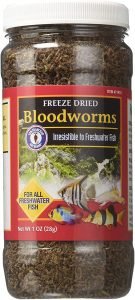
San Francisco Bay Brand Freeze Dried Bloodworms are considered more of a treat for your bettas.
It’s important to note that you can use freeze-dried animal foods such as shrimp, krill, and daphnia to replace meals once or twice a week, but they should not be used as the main ingredient due to their low nutritional value.
They’re a great way to change up what you’re feeding your fish, particularly for picky eaters.
3.9/5 STARS (only a few reviews)
Benefits
- All natural
- Good for finicky eaters
- Treats
Cons
- Not a complete meal replacement
Check Price On Amazon
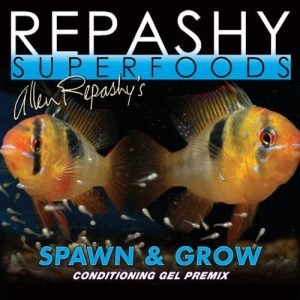
Repashy Spawn & Grow offers premixed gel foods that can be combined with boiling water to form a gel. The gels can be frozen and stored as a food reserve.
It’s main ingredients are made up of krill and squid and it’s an economic and efficient option for your betta.
Preparing Repashy Premix Gel:
1. Boil some water.
2. Mix well 1 part Repashy Gel Mix with 2-3 parts boiling water.
3. Pour the solution into a mold tray.
4. These gel mixes can be cut into smaller pieces and fed directly or frozen for future use.
5. Frozen gels must be completely thawed before feeding by adding each one to warm water.
4.7/5 STARS
Benefits
- Specific for carnivor fish
- Main ingredients: krill & squid
Cons
- Finicky eaters may not like
Check Price On Amazon
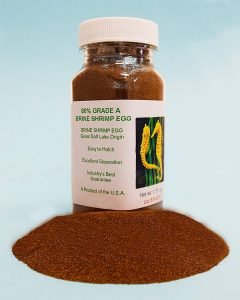
The Brine Shrimp Hatchery Dish is an interactive, fun and economical way to keep your bettas fed. Brine shrimp are small saltwater crustaceans that lay dormant eggs that you can store for long periods of time, feeding your fish daily.
To incubate your own brine shrimp is a relatively simple process, but there are a few factors to consider.
Finding a container that you can keep aerated once you’ve added water without chlorine. For every 40 ml of water, add 1.25 grams of aquarium salt. Then add your aerator and leave for 12 hours before adding the brined shrimp eggs.
You can buy a brine shrimp hatching kit to have a consistent, live food source for your betta, whilst keeping yourself interacted and entertained.
4.6/5 STARS
Benefits
- Live food
- Fun to raise brine shrimp
Cons
- Not always successful when raising brine shrimp
Check Price On Amazon
Betta Feeding FAQs
How Much Should You Feed a Betta Fish?
How much your betta fish should eat at one meal really depends on the size of your pet. A betta’s eye is roughly the same size as its stomach, so fish with larger eyes and size can be fed more.
You can base this on trial and error. For example, if you find granules left over after a meal, try reducing the amount of food you put in the tank.
Another option is to try soaking dry pellets in a little water before placing them in the aquarium. This will prevent them from expanding so much inside your fish’s stomach and may help regulate their appetite.
How Often Should You Feed a Betta Fish?
Bettas need to eat once or twice a day. Adult bettas can usually survive on one meal, while babies or young fish that are still growing need 2 meals a day.
It’s important not to overfeed your betta fish. If you are not at home and are skipping an evening meal, it is better to skip it than to feed twice as much in the morning.
(This article answers the question: How often should you feed bettas bloodworms?)
What Happens When You Overfeed a Betta Fish?
One of the main problems that overeating can cause is constipation. Especially when using low-quality foods with fillers that are harder to digest.
If you notice that your fish’s belly is bloated, it’s stopped wasting, or lost its appetite, the problem is likely constipation. This has the potential to become something more serious, like a swim bladder disorder. The swim bladder is a part of your fish’s body that allows it to swim up and down in the water.
More on Betta diseases found here.
What to Feed Betta Fish When Out of Food?
A betta fish can eat pieces of tuna or shrimp, so long as they’re small and you remove uneaten pieces from the tank afterwards.
You can also feed your betta boiled peas, one at a time. Ensure that you peel off the skin and cut them into small pieces.
How to Feed a Betta Fish While on Vacation?
There are a few options for feeding your betta while on vacation.
First, you can always ask some one to look after your fish while you’re away. However, if you’re only gone for a few nights or a long weekend, your betta will be fine on their own until you come back.
Another good option is investing in an automatic feeder. This is the best way to leave your fish stress-free and a lot of automatic feeders are able to disperse food accurately without over or underfeeding.
Food blocks are another great option if you’re away less than a week, but don’t want to leave your fish without food. They are designed to float in water and dissolve slowly to release small amounts of food at a time.
How Long Can Betta Fish Go Without Food?
A betta can go without food for about 14 days, so if you are concerned that the fish is overeating, it is not a big deal to go without food for a day or two.
It can also take the stress off of small vacations too, knowing your bettas will be okay.
Final Thoughts
All the Best Betta Fish Foods we’ve mentioned here have been nutritionally formulated to help your fish thrive. All of our selections are nutritionally formulated for bettas and will help them live their best lives. Our most recommended foods would be protein packed meals that include krill, squid and fish, while still including green extracts for valid minerals.
.


![How Long Can Betta Fish Go Without Food? [Complete Guide] How Long Can Betta Fish Go Without Food? [Complete Guide]](https://aquariumhunter.com/wp-content/uploads/2021/09/iStock-644996948_itthipolB-1-1.jpg)

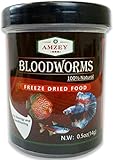

![[Betta Fish Food] Ultra Fresh - Betta Pro Shrimp Patties, 50% Sword Prawns + Akiami Paste Shrimps, All Natural Protein, Rich in Calcium, for Betta's Healthy Development and Cleaner Water, Betta Food](https://m.media-amazon.com/images/I/4154e7UwHYL._SL160_.jpg)


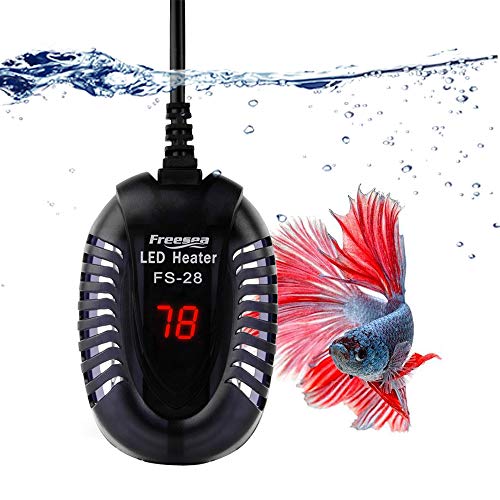




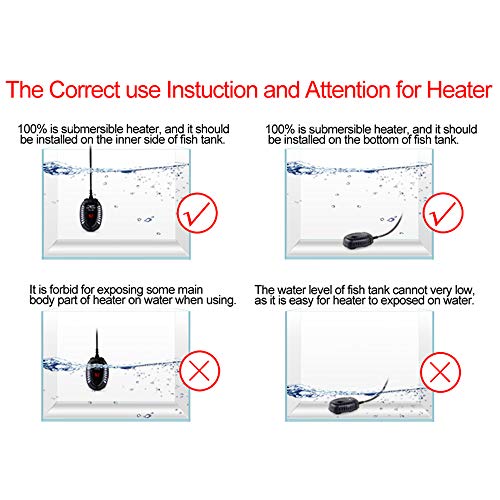
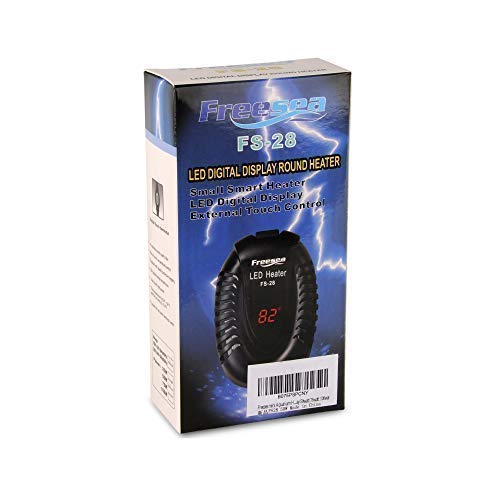
![[Complete Feed Guide ] How long Betta fish can go without food?](https://aquariumhunter.com/wp-content/uploads/2021/09/Best-Plants-for-Betta-Fish-300x250.jpg)
 Betta fry, which are baby bettas, get nutrients from the egg during the first few days of their life. After that, they can be fed 3-4 small meals a day.
Betta fry, which are baby bettas, get nutrients from the egg during the first few days of their life. After that, they can be fed 3-4 small meals a day.![Top [2023] 9 Best Betta Fish Food – Betta Feeding Guide Best Betta Fish Food](https://aquariumhunter.com/wp-content/uploads/2021/03/betta-fish-food.jpg)











